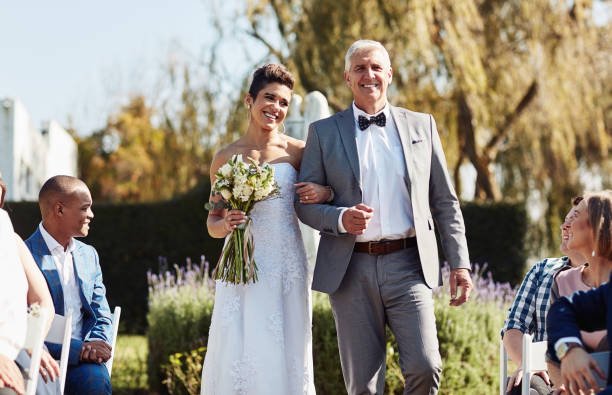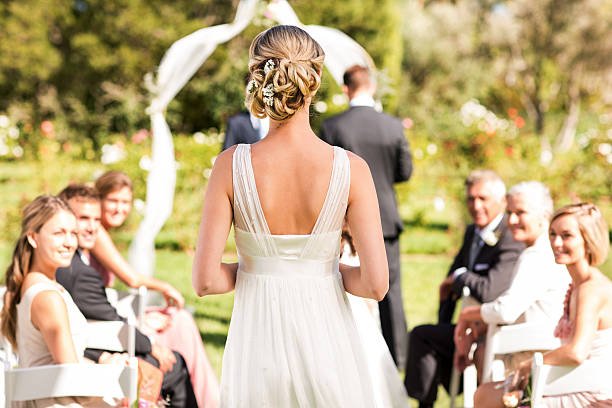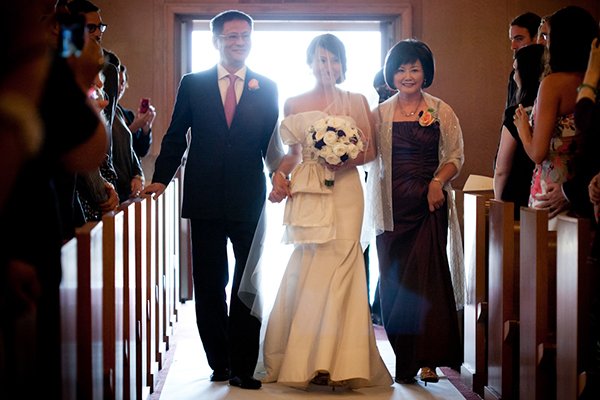A Father's Role in Walking His Daughter Down the Aisle: Tradition or Sexism?
Undoubtedly, one of the most unforgettable moments of a wedding day is that moment when the bride walks down the aisle. It’s the moment everyone, including the soon-to-be spouse, will see the bride in her wedding dress or suit, and it marks the start of the beautiful journey they are about to embark upon together. One of the time-honoured traditions in weddings is the father walking his daughter down the aisle. This symbolic act carries emotional significance, representing the transition from the father's protection to the groom's care. However, as society evolves, family units become more diverse, traditional gender roles are scrutinised and questions arise about whether this tradition is outdated and inherently sexist.
As an inclusive wedding celebrant and relentless feminist, I have found myself asking this question pretty often. So, I decided to explore the perspectives surrounding fathers walking their daughters down the aisle, examining both the traditional and progressive viewpoints. Here’s what I found.
1. Historical Context:
Let’s go back to the roots of this tradition. Historically, weddings were often seen as property exchanges, with fathers transferring their daughters from their households to their husbands'. The act of walking down the aisle symbolised this transfer of ownership. However, as societal norms have progressed, this interpretation has obviously had to be challenged. I don’t know about you, but I am certainly nobody’s property!
2. Tradition and Emotional Symbolism:
Many argue that the tradition of a father walking his daughter down the aisle is not inherently sexist but rather a symbolic gesture of love, support, and connection. It represents a father's role in nurturing and protecting his daughter throughout her life, and the emotional symbolism can be meaningful for both parties involved. Supporters contend that it's a heartfelt tradition that emphasises the bond between father and daughter, rather than promoting sexist ideologies of ownership or possession.
3. Empowerment and Autonomy:
On the other hand, those critical of this tradition argue that it perpetuates patriarchal norms and reinforces the notion that women need to be "given away" from one man to another. They argue that it symbolises the transfer of ownership and control from the father to the husband, reducing the agency and autonomy of the bride. Critics maintain that the tradition reinforces archaic, outdated gender roles and undermines the progress made towards gender equality.
4. Evolving Practices
In recent years, there has been a shift towards more inclusive and progressive wedding practices. Many couples are redefining traditions to reflect their identities, values and personal beliefs. Alternative approaches include both parents walking their children down the aisle, couples walking together, the couples’ children walking them both down the aisle, or brides choosing to walk alone, signifying their independence and agency. These changes reflect a desire to challenge traditional gender roles and foster equality within the context of marriage.
5. Personal Choice and Meaning:
Ultimately, the decision of whether a father walks his daughter down the aisle should be based on personal choice and the values of those involved. It is essential to recognize that while the tradition may have historical connotations, its meaning can vary depending on individual interpretations and intentions. Some fathers and daughters may find great significance and emotional connection in upholding this tradition, while others may choose alternative options that align with their beliefs.
The Conclusion?
The question of whether a father walking his daughter down the aisle is sexist is a complex and nuanced one. It encompasses historical context, emotional symbolism, gender roles, and individual autonomy. As society continues to evolve, it is crucial to engage in open and respectful conversations about the traditions we uphold, evaluating their impact on gender equality and personal empowerment. Ultimately, the decision should be guided by personal values, ensuring that the wedding ceremony reflects the couple's beliefs and fosters a sense of inclusivity, love, and respect for all involved.





